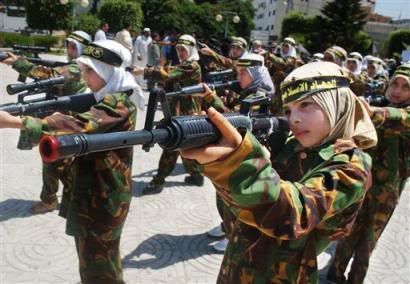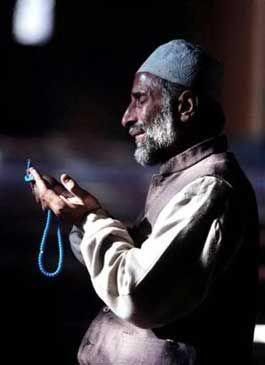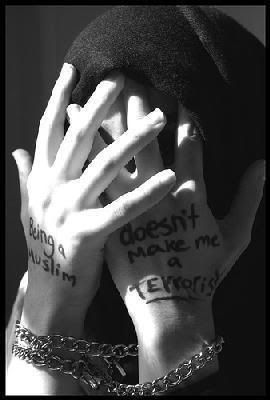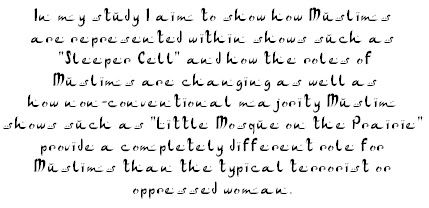بسم الله الرحمن الرحيم
This article discusses Pakistan and its current state of affairs. I thought this article could be helpful in my independent study as a section of it examines the rising extremism and the reasons behind it. The news constantly portrays Pakistan as a place where extremists come to train and learn in madrassas ( which is simply a religious school not an extremist school as often claimed to be), however this article reveals that it is not just Pakistani's behind all this but people from neighbouring countries who cross the border to spread their political agenda by using the label of Islam to attract innocent, and majority poor, Muslims to fight for their own cause by claiming it is for their religion. As well as the backlash at the puppet regime lead by Musharraf.
There are some interesting quotes within the article which could be useful as Pakistani politics is discussed within my main text. "Sleeper Cell", and is held as a reason behind some of these terrorists.
"Sixty years after its founding as a homeland for India's Muslims, Pakistan straddles the fault line between moderate and militant Islam. Its dilema is a cautionary tale for the post- 9/11 world."
"This is also where two conflicting forms of Islam meet: the relatively relaxed and tolerant Islam of India, versus the rigid fundamentalism of the Afghan frontier. .. The clash between moderates, and extremists in Pakistan today reflects this rift.. So when the earth trembles in Pakistan, the world pays attention."
"Meanwhile, six years after 9/11, the forces of Islamic radicalism are gaining strength and challenging Pakistan's moderate majority for the soul of the country."
"Pakistan's first leader, Mohammed Ali Jinnah, and his brain trust of secular intellectuals... Their Pakistan was to be a model of how Islam, merged with democratic ideals, could embrace the modern world."
"He explains (Javed Ibrahim Paracha) what emboldens these young women to risk their lifes for Islam: "This government has lost all credibility," he says. "People look at Musharraf and they see a U.S puppet who's willing to delcare war on fellow Muslims to satisfy America. They also see his generals getting rich, while they're getting poorer every day. People are losing hope. Pakistan and its government are becoming two different things."
"A large majority of Pakistanis were, and remain, moderates."
"That all changed in December 1979, when the Soviet Union invaded neighboring Afghanistan, driving hundreds of thousands of Afghan refugees - mainly conservative Pahtun tribesmen - across the border of Pakistan.. During the 1980s, as the mujahideen prevailed against the Soviets in Afghanistan, the winds of extremism blowing from the north-west began to chill all of Pakistan."
"Not all Pakistan madrassas today are fundamentalist or radical. Some are shoestring operations run by moderate clerics to meet the educational needs of the poor."
"Osama Bin Laden and other leaders of the Afghan jihad now moved freely in and out of northwestern Pakistan and its Federally Administered Tribal Areas."
"When the government fails them, people get angry, he says 'They lose faith in the system and look for alternatives. Think how easy it would be for the Islamists - or Taliban or Al Qaeda - to go to the brothers of this girl now and say, "What happened to you family is not justice. This man dishonoured your sister, he dishonoured your father and your family name. Join us and we will help you get justice. We will maek him pay." When citizens are denied their basic human rights, they become radicalised. When people are powerless, they are easily manipulated. This is what worries me the most."
"But they believe, as many here do, that Islam is under attack. By America, by the West, by India, by their own government."









